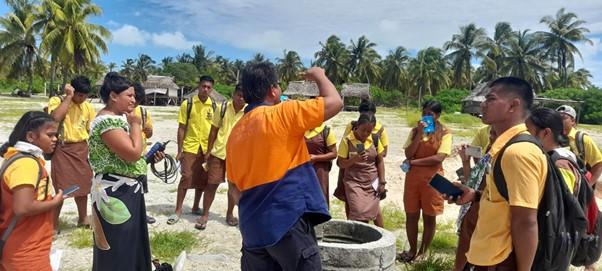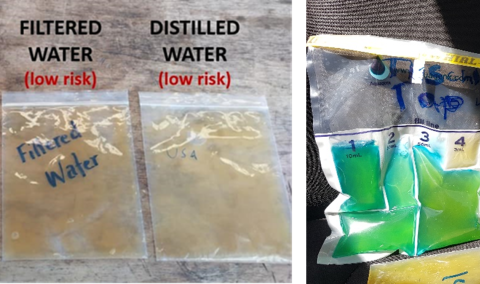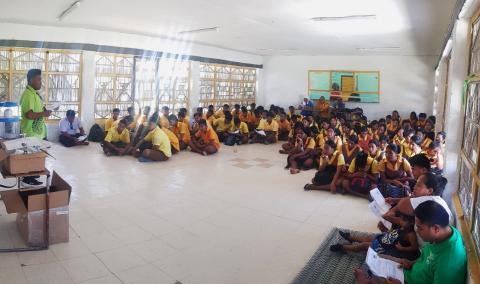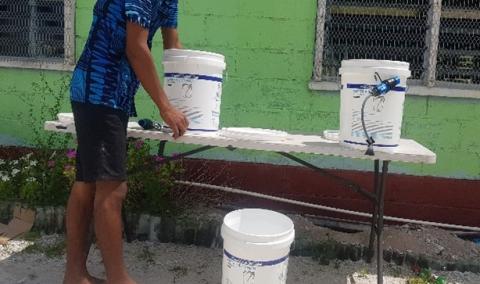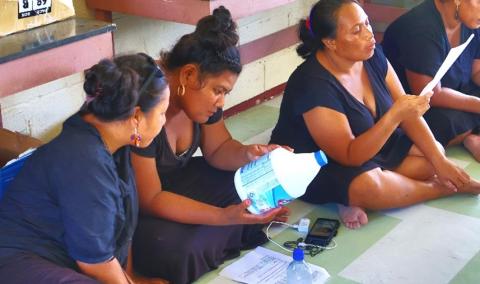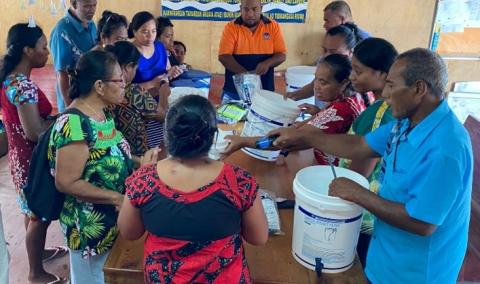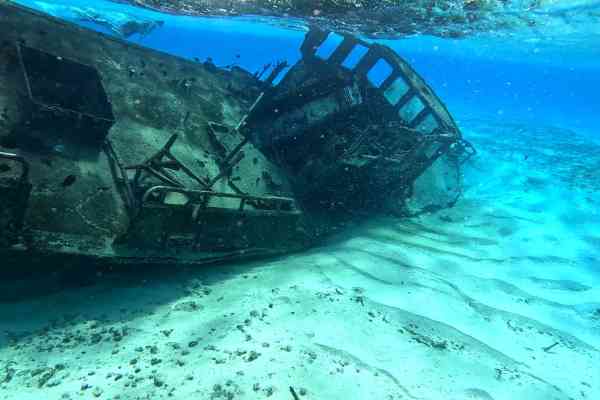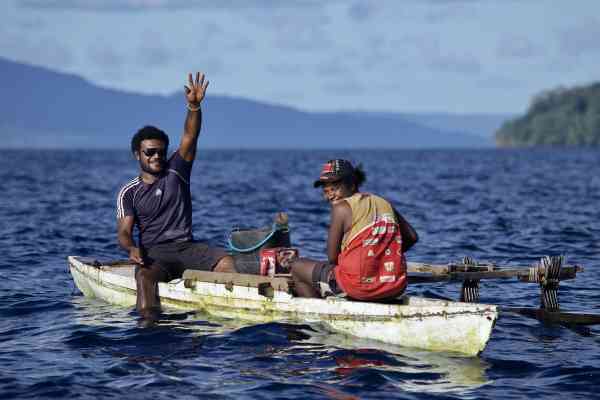
Water in Kiritimati is sourced from household wells, rainwater catchments, or centralised reticulation systems fed by groundwater galleries at one of the island’s four primary freshwater lenses. Due to intermittent piped water supply and lack of on-site source protection, all common drinking water supplies in Kiritimati are considered contaminated (with water quality test results substantiating this) and thus require treatment and safe storage.
From July to October 2023, more than 500 students and 50 teachers participated in water quality testing and treatment training conducted at Kiritimati Island’s four primary and four secondary schools as part of a water, sanitation and hygiene (WASH) in schools programme under the European Union (EU) and New Zealand Government funded Kiritimati Island Water Project. The sessions were run by Pacific Community (SPC) in partnership with Kiritimati’s Water and Sanitation Division (Ministry of Line and Phoenix Islands Development) and Environmental Health Division (Ministry of Health and Medical Services). Teachers and students performed tests on their school’s water sources to identify safe/unsafe drinking water and viable treatment methods.
 School water samples were tested for the presence of e-coli (a subgroup of faecal coliform) and total coliform bacteria using Aquagenx GEL and CBT (compartment bag test) kits. The visual results enabled participants to recognise which water sources were cleanest/safest, normally a comparison between groundwater, rainwater and rainwater. Discussions were then held about how to protect and maintain water sources to obtain safer drinking water.
School water samples were tested for the presence of e-coli (a subgroup of faecal coliform) and total coliform bacteria using Aquagenx GEL and CBT (compartment bag test) kits. The visual results enabled participants to recognise which water sources were cleanest/safest, normally a comparison between groundwater, rainwater and rainwater. Discussions were then held about how to protect and maintain water sources to obtain safer drinking water.
Once established that all water sources contained at least some level of faecal contamination, a variety of water treatment options were presented: filtration (hollow fibre membrane and ceramic cartridge filters), chemical disinfection (using household bleach and solar disinfection – SODIS), and thermal disinfection (boiling).
Form 6 student from Itoin Mainiku High School, Ngitati Reati, stated “This training is a new experience, considering that this is probably the first of its kind to be conducted in every school during my past five years of schooling in Kiritimati. We always believed that any collected rainwater is the cleanest and safest option to drink without treatment, but water quality test results have shown us the opposite! But I am grateful because we are now well equipped with the necessary knowledge and skills on how to treat our drinking water, all thanks to this training and the distributed notes that highlighted the important information for our future use.”
Each school received several Sawyer bucket filters to promote and enable access to safe drinking water in all schools on the island.
Mrs Kataraiti Tion, Principal of Line & Phoenix Senior Secondary School (LPSSS), a government boarding school, expressed, “I would like to extend our kitchen and dining hall staff’s gratitude to the Kiritimati Island Water Project and the donors for these valuable aids. They have been a great help to them and us teachers and students because aside from catering the school with safe drinking water, these bucket filters have also saved us time that was usually spent every day boiling water for the lodged students. These bucket filters and all other water treatment methods that were taught to us are real life savers!”
In partnership with the Government of Kiribati, SPC, through the Kiritimati Island Water Project, will continue to support safe and sustainable drinking water for every school on Kiritimati Island.
